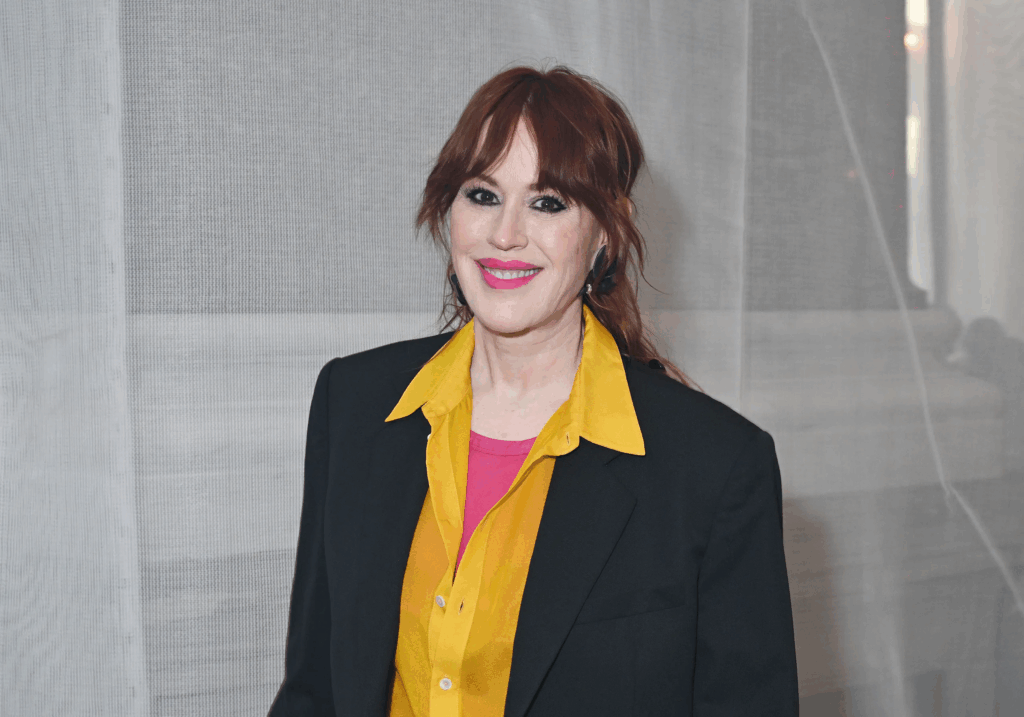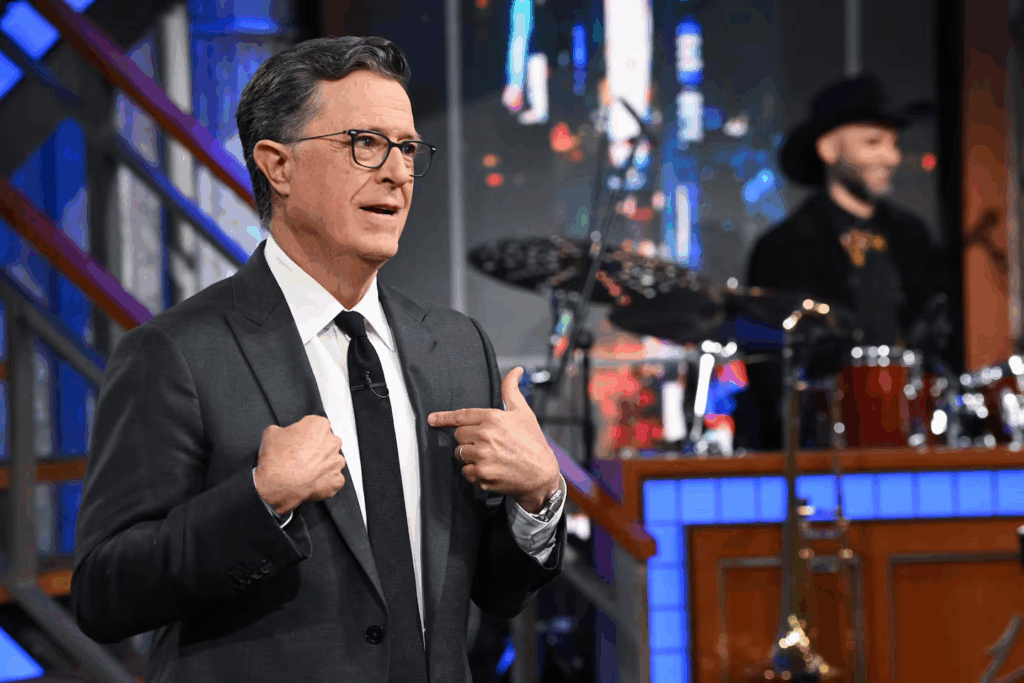
Gilbert Flores/Getty Images

The entertainment world was abuzz this week after CBS announced it would be ending The Late Show with Stephen Colbert, citing financial concerns. As fans and critics alike processed the news, one unexpected voice reignited conversation: Molly Ringwald, the 1980s icon known for her roles in classic films like The Breakfast Club, took to Instagram with a bold and surprising idea.
In her post, Ringwald suggested that Colbert’s departure from late-night television might open up new, unexpected doors:
“Only silver lining I see is he’ll be free to run for president now. Whatever he does, I’m here for it.”
Her comment quickly went viral, sparking a wave of reactions across social media. While some supporters saw it as a light-hearted show of admiration, others questioned the seriousness of the suggestion — and whether a transition from satire to statesmanship could ever be plausible.
Colbert’s Career at a Crossroads
Stephen Colbert, a longtime satirical voice and cultural critic, has spent decades navigating the intersection of comedy and politics. His Late Show tenure often involved sharp commentary on U.S. policy, elections, and public figures, particularly during the Trump administration. But despite his loyal fan base, CBS announced the show’s end citing declining ratings and rising production costs — reportedly losing tens of millions annually.
While some have raised concerns about media freedom or political motives, CBS maintains the decision was purely financial.
A Star’s Provocation or a Political Statement?
Ringwald’s comment, while possibly tongue-in-cheek, shines a light on a broader conversation about celebrity influence in politics — a trend that’s far from new. From Ronald Reagan to Donald Trump, the path from entertainment to politics isn’t without precedent.
Still, the idea of Colbert entering the presidential race remains purely speculative. He has yet to publicly respond to Ringwald’s remark or comment on any political aspirations.
A Cultural Flashpoint
The moment also stirred debate about generational pop culture and how legacy celebrities engage with modern discourse. While Ringwald has stayed active through writing and advocacy, critics have sometimes questioned her political takes. This latest comment — part support, part provocation — seems to fit squarely into that pattern.
Whether taken seriously or not, her endorsement of a “President Colbert” has certainly kept both their names trending — and, in today’s attention economy, that’s a form of power all its own.